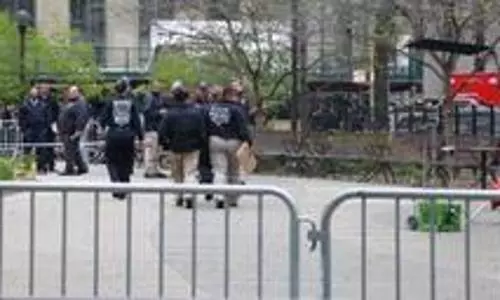
Loyalty to the executive bodes ill for judiciary
text_fieldsPrime minister Narendra Modi's comments about Indian judiciary, made while releasing the the diamond jubilee postal stamp of Gujarat High Court, were something that any Indian would wish to be true. His words ran thus: "Our judiciary has always interpreted the Constitution positively and creatively to strengthen it further." This perception, in the eyes of many jurists, is one that no one can justify based on the verdicts in Babri case and those related to the citizenship law protests. Even as the prime minister argues that "be it safeguarding the rights of people of the country or when any situation arose where national interest needed to be prioritized, judiciary has always performed its duty", constitutional experts have expressed the diametrically opposite view, on issues ranging from the Kashmir issue to the farm laws.
That the country and the people are two different things, and that national interest and the people's interest can be contradictory, is a hypothesis incompatible with democracy and the Constitution. If the prime minister's comments at least occasions a debate whether rule of law and equal justice are fulfilled, that would be a beneficial fallout of the prime minister's speech. The common man's experience is far removed from the niceties of ceremonial words at a celebration . A report from Pune a week ago, gives a small, but not rare pointer: an adivasi female student, Kanchan Nanaware who had been in detention under UAPA charges, died while in custody. Right at the time of her arrest in 2014, under the Maoist label, she was suffering from weak health. On top of her congenital cardiac disorder, her brain also got affected while in jail. Despite several requests, she did not get bail; even after her health worsened, she was not spared. Ultimately she was admitted to hospital in Pune and although she was operated upon, she succumbed to her condition. In six out of her nine cases, the court had acquitted her. In the remaining three, trial was getting unduly delayed. It is one of the darkest faces of our judiciary that innumerable human beings suffer torture spending years in jail under detention, mostly in cases with high prospects of acquittal.
Over the last one year, dozens of human rights activists have been arrested. The fact is that the judiciary - bound to check executive excesses – did not have much success on this score. The Constitution envisions that when the ruling establishment trespasses limits, the judiciary should offer a defence joining the side of the citizenry. It is part of that vision that the three arms of the judiciary, executive and legislature should exist in parallel and without mutually depending on one another. But unfortunately, signs of the judiciary becoming subservient to the executive are increasing at an alarming rate. It is not only that lofty judges have no hesitation in eulogising rulers, but such instances keep repeating too. Even at the diamond jubilee celebration of the Gujarat High Court, Supreme Court judge M.R. Shah praised Narendra Modi as the 'most popular, loved, vibrant and visionary leader', a commendation that has become subject of critiques. And chief justice of Gujarat Vikram Nath heaped praise on not only the prime minister but also on Gujarat chief minister Vijay Rupani.It does not belong to the realm of formal courtesy when a judge singles out a ruler for eulogy. It was about a year ago that Justice Arun Mishra of the Supreme Court extolled Modi in excess. Several former judges and Bar associations had pointed out the inappropriateness of such remarks. It was even pointed out that orders by many judges reflected a servility to the ruling dispensation. Be that true or not, it is for the judges themselves to take care not to create that impression among the people. Governments have a role not only in the appointment of judges but even in the budget of courts. Even then, both sides will fulfil the precept of the Constitution when the government does what it is expected to do and the courts function without any subservience. The indifference shown by the government to the judiciary does affect the latter's effectiveness too. In the lower courts of eight large states, a fifth or more number posts of judges are vacant. And cases pending for over ten years would also be about the same number. Prisons are filled with convicts and detainees. Facilities designed for a hundred prisoners are now forced to be shared by 168. The judiciary itself is in a situation demanding a judicial review. And justice will not prevail by the judiciary and executive merely patting each other's back.























